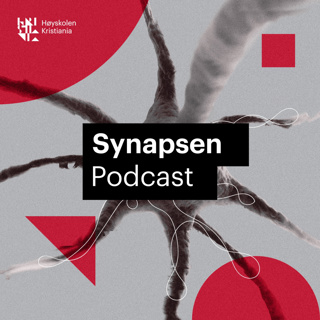
206. Nichola Raihani — The Social Instinct: How Cooperation Shaped the World
Cooperation is the means by which life arose in the first place. It’s how we progressed through scale and complexity, from free-floating strands of genetic material, to nation states. But given what we know about the mechanisms of evolution, cooperation is also something of a puzzle. How does cooperation begin? A biologist by training, Nichola Raihani looks at where and how collaborative behavior emerges throughout the animal kingdom, and what problems it solves. She reveals that the species that exhibit cooperative behavior — teaching, helping, grooming, and self-sacrifice — most similar to our own tend not to be other apes; they are birds, insects, and fish, occupying far more distant branches of the evolutionary tree. By understanding the problems they face, and how they cooperate to solve them, we can glimpse how human cooperation first evolved. And we can also understand what it is about the way we cooperate that has made humans so distinctive and so successful.
4 Sep 20212h 7min

205. Richard Dawkins on evangelizing for evolution, science, skepticism, philosophy, reason, and rationality, based on his book Books Do Furnish a Life: Reading and Writing Science
In episode 205, Michael Shermer speaks with Richard Dawkins, the author of The Selfish Gene, voted The Royal Society’s Most Inspiring Science Book of All Time, and also the bestsellers The Blind Watchmaker, Climbing Mount Improbable, The Ancestor’s Tale, The God Delusion, and two volumes of autobiography, An Appetite for Wonder and Brief Candle in the Dark. He is a Fellow of New College, Oxford and both the Royal Society and the Royal Society of Literature. In 2013, Dawkins was voted the world’s top thinker in Prospect magazine’s poll of 10,000 readers from over 100 countries. This episode is heavily edited because Dawkins was having trouble with his voice, and Shermer tried to speak a little more to give Dawkins a chance to let his voice rest.
1 Sep 20211h 27min

204. Carole Hooven on T: The Story of Testosterone, the Hormone that Dominates and Divides Us
In episode 204, Michael Shermer speaks with codirector of undergraduate studies in the Department of Human Evolutionary Biology at Harvard University, Carole Hooven, PhD about testosterone. While most people agree that sex differences in human behavior exist, they disagree about the reasons. But the science is clear: testosterone is a potent force in human society, driving the bodies and behavior of the sexes apart. But, as Hooven shows in T, it does so in concert with genes and culture to produce a vast variety of male and female behavior. And, crucially, the fact that many sex differences are grounded in biology provides no support for restrictive gender norms or patriarchal values. In understanding testosterone, we better understand ourselves and one another — and how we might build a fairer, safer society.
28 Aug 20211h 47min

203. Lee McIntyre — How to Talk to a Science Denier: Conversations with Flat Earthers, Climate Deniers, and Others Who Defy Reason
“Climate change is a hoax — and so is coronavirus.” “Vaccines are bad for you.” These days, many of our fellow citizens reject scientific expertise and prefer ideology to facts. They are not merely uninformed — they are misinformed. They cite cherry-picked evidence, rely on fake experts, and believe conspiracy theories. How can we convince such people otherwise? How can we get them to change their minds and accept the facts when they don’t believe in facts? In this conversation based on his new book, Lee McIntyre shows that anyone can fight back against science deniers, and argues that it’s important to do so.
24 Aug 20211h 35min

202. Julia Galef — The Scout Mindset: Why Some People See Things Clearly and Others Don’t
When it comes to what we believe, humans see what they want to see. We have what Julia Galef calls a “soldier” mindset: a drive to defend the ideas we most want to believe — and shoot down those we don’t. But if we want to get things right more often, argues Galef, we should train ourselves to have a “scout” mindset. Unlike the soldier, a scout’s goal isn’t to defend one side over the other. It’s to go out, survey the territory, and come back with as accurate a map as possible. Regardless of what they hope to be the case, above all, the scout wants to know what’s actually true. In The Scout Mindset, Galef explores why our brains deceive us and what we can do to change the way we think.
21 Aug 20211h 46min

201. Michael Shermer on Evolution, I.D. Theory, Consciousness, Morality, Gullibility, and Nothing (AMA # 7)
In this AMA Dr. Michael Shermer answers your questions about evolution and creationism, intelligent design theory, the hard problem of consciousness, the origins of morality, how science deals with anomalies, to what extent humans are naturally rational or irrational / skeptical or gullible, and why there is something rather than nothing.
18 Aug 20211h 13min

200. Philip Zimbardo on the Nature & Nurture of Good & Evil
August 15 marks the 50th anniversary of day one of the Stanford Prison Experiment — one of the most controversial studies in the history of social psychology. In this conversation, Michael Shermer speaks with renowned social psychologist and creator of the Stanford Prison Experiment Philip Zimbardo, exploring the mechanisms that make good people do bad things, how moral people can be seduced into acting immorally, and what this says about the line separating good from evil. His book, The Lucifer Effect, explains why we are all susceptible to the lure of “the dark side.” and how situational forces and group dynamics can work in concert to make monsters out of decent men and women. Shermer and Zimbardo discuss: Zimbardo’s life mission to understand the nature of evil, the Stanford Prison Experiment (SPE) and its critics, the nature of human nature, The Dark Triad that leads to violence, obedience to authority, free will/determinism, and how we can teach ourselves to act heroically.
15 Aug 20211h 49min

199. David Potter — Disruption: Why Things Change
This conversation takes a deep dive into disruptions. How do things change? The question is critical to the historical study of any era but it is also a profoundly important issue today as western democracies find the fundamental tenets of their implicit social contract facing extreme challenges from forces espousing ideas that once flourished only on the outskirts of society. Not all radical groups are the same, and all the groups that the book explores take advantage of challenges that have already shaken the social order. They take advantage of mistakes that have challenged belief in the competence of existing institutions to be effective. It is the particular combination of an alternative ideological system and a period of community distress that are necessary conditions for radical changes in direction. As Disruption demonstrates, not all radical change follows paths that its original proponents might have predicted.
10 Aug 20211h 23min




















